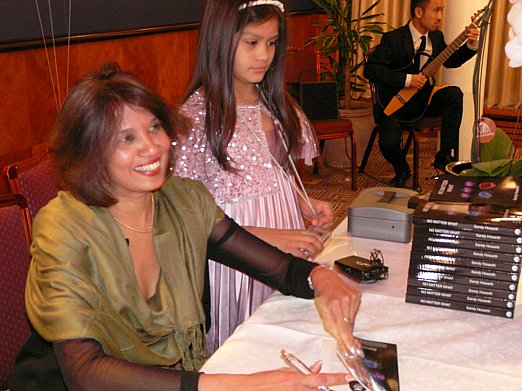SUPPORT FOR FAMILIES WITH AUTISM
July 18, 2011
Raising children is a strain on most parents as each family copes with their responsibilities based on their experience, knowledge and ability to cope. As the saying goes “the stresses and joys of parenthood”. Parents learn to understand the personalities of each child and their children learn to recognise the personalities of their parents and other family members.
Coping in an environment which clearly lacks the acceptance of Autism, a lack of social support and dealing with an Autistic child’s antisocial behaviour are a few of the challenges that parents are faced with. In addition it has been noted that an Autistic child manifests existing problems within a family or for others creates new areas of conflict.
When living with an Autistic child the stresses are so much greater than in a non-Autistic household, as the Autistic child has problems in not only relating to other people but recognising that others have needs too. Some of the challenges in living with Autism could be sleep disorders, a lack of understanding in relating to others, barriers in communication, a lack of ability to care for themselves, and food and sensory intolerances. As a result Autism impacts on the lives of the rest of the family.
The lack of ability to communicate while making sense of the world is the greatest barrier to an individual with Autism. Events which most people accept as normal everyday situations could cause a great deal of anxiety or fear to an Autistic child.
Most individuals with Autism have added learning disabilities and some suffer from Epilepsy. The added difficulties add more pressure on families coping with the disability. The difficulties outlined, not only cause an enormous strain on the family, but also leave them feeling isolated. Some express sadness, anger and resentment. Some parents find it too much to cope with the added pressure resulting in the break-up of marriages. Some find it difficult to cope emotionally and mentally and often suffer depression. The stresses have been brought to public attention as a result of some high profile incidents that have been reported in the past years, such as murder/suicide of Autistic children and their prime carers. All families require as much support and guidance to deal with their unexpected challenges and enable them to lead happier lives.
It has been reported that the divorce rate in families with an Autistic child is around 80%. Dealing with the stress of the diagnosis, behavioural issues, lack of trained staff, lack of support from services, social issues, financial stress to provide adequate long term support are but a few of the factors that add to the stress of any marriage.
In families with an Autistic child, it tends to be the case that one parent stays remote from the situation and the other gets over involved, typically the dad focuses on his work and the mum focuses on the needs of the Autistic child. This doesn’t leave any room for shared interests which leaves the couple moving in separate directions. Therefore, keeping the lines of communication open means that you can do more to help your child. It is most desirable that parents share the responsibility 50-50, but the chances of this happening are remote. For the sake of the family and the partnership the parent who is most involved needs to have scheduled breaks in order to cope effectively. Some parents run away from their responsibilities, their marriage and even their Autistic child.
Look at respite services available and if you have the finances available you can hire trained people to provide the care that your child needs. Avoiding burnout is an essential part of being a good parent for an Autistic child and shows that you are in control and have effective coping strategies in place.
Mothers of Autistic children are said to suffer a great deal of emotional trauma, as they often hold themselves responsible for their child’s behaviour. Fathers of Autistic children are less affected as they tend to suppress their feelings, whereas mothers vent their feelings by going through a range of grieving processes.
I believe that Autism is a strength. Taking note of the neurotypically wired majority of the human race, how many would be able to comprehend living in an Autistic world? The Autistic child did not ask to be Autistic. It is confusing, it is bizarre, it is scary, and it is lonely just to outline a few scenarios in the mind of an Autistic person. They need the support of all humankind to learn to understand them. Like all people, Autistic individuals also have their own limitations but they most certainly have their own strengths. Given the best chance to realise their potential they are capable of being the best they can.
“Living with Autism is a challenge to most families, but living in our world is a greater challenge to an individual with Autism. Help them in their journey through life.”
Award winning author of "No Matter What" (Autism)
(Psychology / Mental health - Parenting / Family - Health general )
http://www.amazon.co.uk/No-Matter-What-Sandy-Howarth/dp/1847477496
Posted by Sandy Howarth. Posted In : Autism support



